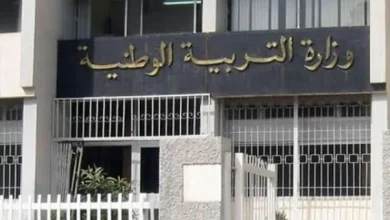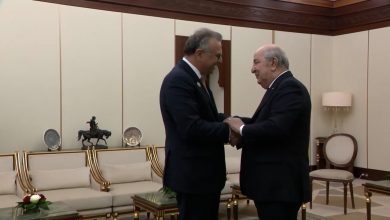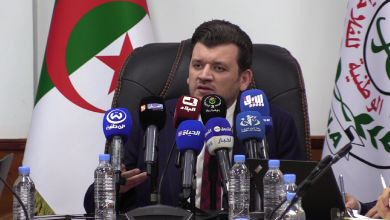The detention of Sudanese journalist Muammar Ibrahim by the Rapid Support Forces (RSF) in El Fasher, North Darfur, has ignited a wave of condemnation and calls for his immediate release. News of Ibrahim’s arrest surfaced on Sudanese social media platforms, accompanied by a video showing him surrounded by armed men. In the video, Ibrahim explains that he was apprehended while attempting to leave El Fasher. He asserts his neutrality, emphasizing his journalistic work and stating he has no affiliation with the Sudanese Armed Forces (SAF). He also mentioned having previously collaborated with Al Jazeera Mubasher. He appealed for communication with relevant parties and reassured viewers that he was in “safe hands,” though the context of such a statement under armed guard raised immediate concerns.
The Sudanese Journalists Syndicate issued a statement late yesterday confirming Ibrahim’s detention. The syndicate stated that the journalist, a member of their organization, was arrested following the RSF’s capture of the 6th Infantry Division headquarters in El Fasher. The Syndicate expressed profound concern over Ibrahim’s safety and held the RSF fully responsible for his well-being, demanding his unconditional and immediate release. The statement further conveyed the Syndicate’s deep anxiety regarding the rapidly deteriorating situation in El Fasher, compounded by the disruption of satellite communication networks – the only operational networks in North Darfur – resulting in a near-total media blackout.
Online activists have launched a campaign advocating for Ibrahim’s release, placing responsibility for his safety squarely on the shoulders of the RSF. The circumstances surrounding his detention and the RSF’s control of El Fasher raise serious questions about press freedom and the safety of journalists operating in conflict zones.
The RSF announced its control over El Fasher, the capital of North Darfur, on Sunday. This capture marks a significant shift in the ongoing conflict between the RSF and the SAF, as El Fasher was one of the last major cities held by the army. The RSF’s siege of the city had lasted for over a year, creating immense hardship for its residents. However, a military source within the SAF confirmed to Al Jazeera that their forces had withdrawn from the division headquarters, abandoning it after intense fighting, during which the RSF reportedly deployed drones extensively.
The fall of El Fasher is not just a military victory for the RSF; it exacerbates an already dire humanitarian crisis. For nearly two years, residents of El Fasher have endured a crippling siege imposed by the RSF. The recent escalation in fighting has dramatically worsened the humanitarian situation, with drone activity increasing over the city and fears of field executions intensifying, particularly westward towards the town of Tawila. The disruption of communication networks further isolates the city, hindering aid efforts and making it difficult to assess the full extent of the crisis.
The International Organization for Migration (IOM) recently reported that 1,070 individuals were displaced from El Fasher in just two days, between October 19th and 21st, due to the deteriorating security situation. An additional 770 people fled to the Tawila area between October 2nd and 4th, driven by escalating conflict and pervasive insecurity. These figures highlight the immense human cost of the fighting and the urgent need for humanitarian assistance.
For more information about News, check our dedicated section.
The situation in El Fasher mirrors a broader pattern of conflict-related displacement and suffering across Sudan. The RSF’s advance and the SAF’s resistance have created a volatile and unpredictable environment, forcing civilians to flee their homes in search of safety. The targeting of infrastructure, including communication networks, further compounds the crisis by hindering humanitarian access and isolating communities.
Ibrahim’s detention underscores the vulnerability of journalists working in conflict zones. The RSF’s actions raise serious concerns about press freedom and the ability of journalists to report on the conflict without fear of reprisal. The international community, including human rights organizations and press freedom advocates, has joined the Sudanese Journalists Syndicate in calling for Ibrahim’s immediate and unconditional release.
The Committee to Protect Journalists (CPJ) has issued a statement condemning Ibrahim’s detention and urging the RSF to respect the rights of journalists. The CPJ emphasized the importance of independent reporting in conflict situations and called on all parties to the conflict to ensure the safety and security of journalists.
The situation in El Fasher remains precarious. The RSF’s control of the city raises concerns about the potential for further human rights abuses and the exacerbation of the humanitarian crisis. The international community must increase its efforts to provide humanitarian assistance to those affected by the conflict and to ensure the protection of civilians. The immediate release of Muammar Ibrahim is a crucial step in demonstrating respect for press freedom and the safety of journalists operating in Sudan.
The events in El Fasher and the detention of Muammar Ibrahim serve as a stark reminder of the challenges facing Sudan as it navigates a complex and violent transition. The protection of journalists and the free flow of information are essential for promoting accountability and fostering a peaceful resolution to the conflict. The world is watching, and the RSF will be judged by its actions in El Fasher and its treatment of journalists like Muammar Ibrahim. The call for his release echoes across borders, fueled by a commitment to press freedom and the fundamental right to report without fear.



